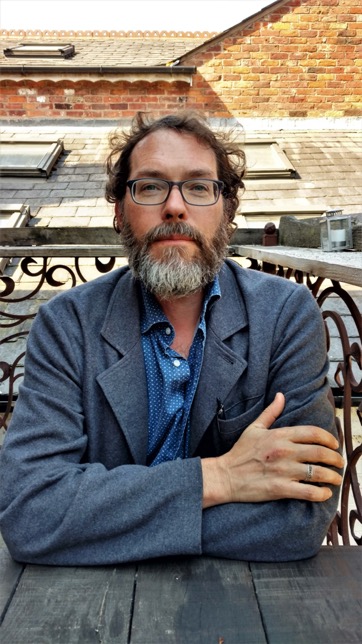Takeaway
Religion and spirituality are part of the human experience. Sometimes, it can improve patient well-being to include these topics in our conversations.

Creative Arts in Medicine | August 9, 2023 | 2 min read
By David Kopacz, MD, University of Washington
When we all went to grandma’s house
after her Modified Radical Mastectomy with 3 + nodes
I said,
“Hi grandma, looks like I’m a little wet.”
She said,
“I’m fine, I’m fine.”
We had pizza
then I talked with my dad about the world,
he thinks that he can see the work of the devil all around us,
a conscious tearing down of the family and religion
until people can’t believe anything or trust anyone
I said something about societal causes, but he replied,
“It makes it more simple if there is someone to blame for everything, rather than the world just plain falling apart.”
I kept noticing
how many times death and loss
came up while we were talking to grandma – how does one cope with all that reality?
Later, when everyone was asleep, I got up to go to the bathroom
I heard my grandmother snoring in the next room
and I stopped and listened to the breathing
the loud nasal inhalations
and the soft exhalations
I knew that that was the sound of mortality
and I know that I
will remember that
snoring, that fundamental, undeniable fact of my grandmother’s life
and when she eventually dies I will remember her snoring,
and perhaps when I am on my deathbed,
I will think about that snoring and my grandmother’s acceptance of her mortality and her trust in God.
The title of this poem plays off of the poem “Over the River and Through the Wood” by Lydia Maria Child. Instead of a happy outing, though, this trip was from my immersion in medical education to visiting my grandmother who was dying of cancer. While everyone is there, the concern and worry over my grandmother comes out in different ways and comments as we all go through something very normal, a visit to Grandmother’s House, and yet it is completely unknown territory when confronted with impending death (my Grandmother, Elizabeth “Elsie” Sophia Skorski Kopacz, was on hospice at the time.) We were all trying to make sense of life, living, dying, and death in our own ways.
Another theme is the tension between science and religion and how the different generations tried to make sense of death. Many of us go through different chapters and seasons in our spirituality as we go through the developmental process of life. This was a time I was immersed in science and God and the Catholic Church did not give me much solace. My father admits, at the time, to using a religious framework to make sense of the world and why things go wrong. My grandmother had a very direct and uncomplicated faith that comforted her as she faced death. Hearing her breath at night, I was struck by how strong the breath of life is, and yet how temporally-limited life is and how every breath could be our last. Religion, spirituality, and existentialist philosophy are all relevant in our lives and work and we should make space for them in our conversations with our patients.
This piece expresses the views solely of the author. It does not necessarily represent the views of any organization, including Johns Hopkins Medicine.

